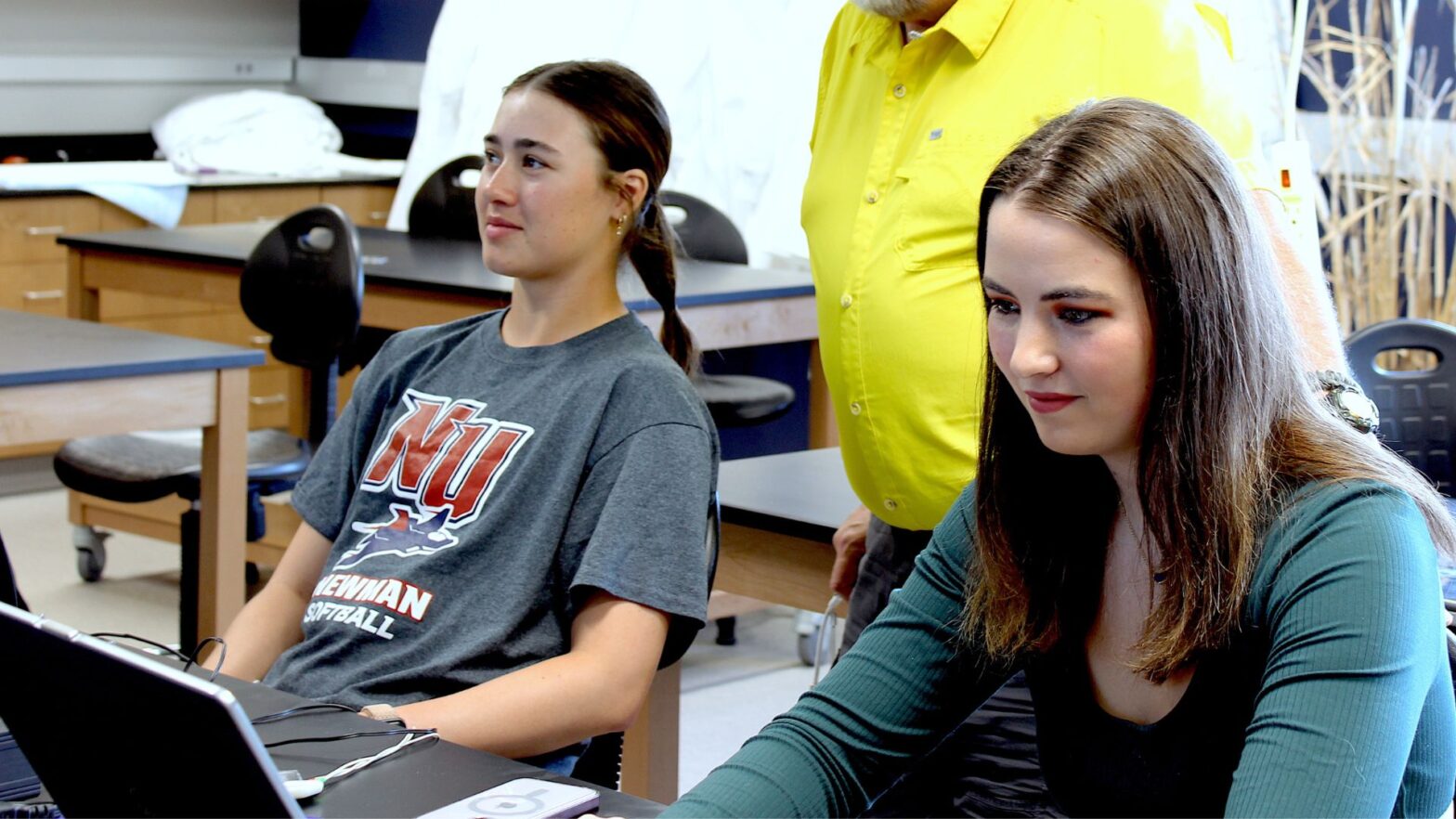According to the Centers for Disease Control and Prevention, epilepsy is a neurological disorder that over 1% of the U.S. population, or 3.4 million people, suffers from.
Newman University student Shelby Bussman is no stranger to the brain disease.
Bussman experienced her first epileptic seizure at just 2 years old in the form of a grand mal seizure. After being prescribed anti-epileptic medication, the seizures stopped, only to return later in the form of partial complex seizures. That’s when her health began to decline.
“I had no control over my muscle movements, my eyes rolled back, I had no awareness,” said Bussman. “During that episode, the abnormal electrical activity had reached both sides of my brain and it wasn’t localized in one section of my brain.”
Bussman knew she wanted to eventually attend a university that would lay the foundation to become a pediatric neurologist. She envisioned herself at Newman University, and the decision proved to be the best one for Bussman.

“I wanted a good path into medical school,” Bussman said. “I saw that Newman had a bridge program to KUMC (the University of Kansas Medical Center), as well as a strong biology pre-medicine program, so I decided to come here.”
Bussman’s first- and second-hand experiences with neurological disorders have without a doubt inspired her future career choice. Her brother was born in 2014 with cerebral palsy, and she received brain surgery a few years later in 2017. She saw and experienced how these disorders affect a person’s mentality, education and relationships with others, and wanted to be part of a solution.
Epilepsy has a broad range of symptoms, and each case is unique. For Bussman, her symptoms included short-term memory loss and stunted growth development. When someone told her something, she forgot it within minutes. Her growth development was impacted severely.
“When I was in fifth grade, I was acting like a first grader,” said Bussman.

Many epilepsy patients experience drug resistance, which is when a patient’s body cannot work with the medication provided. For epilepsy patients, this comes in the form of anti-epileptic medication. When a patient’s body cannot use the medications to stop his or her seizures, doctors must find alternative solutions.
“For me, my drug resistance came when the doctors saw that my seizures weren’t being reduced by the medication I was taking. They had to find another route and decided on brain surgery. Still, science needs to find a way around medication and find more natural ways to treat patients who don’t have the ability to adapt to medications,” said Bussman.
As a Newman student, Bussman has taken her personal research of epilepsy to new heights. When she needed to take a microbiology course, she set out to enroll but also make it an honors course. She added a lab and worked with Assistant Professor of Biology Tomoko Bell one-on-one to conduct research.
Researchers have found that the ketogenic diet, or keto diet, helps reduce seizures in certain types type of epilepsy, including refractory epilepsy. The high-fat, low-carb and restricted-protein diet shifts how the body metabolizes food to create energy. Instead of using glucose, it converts stored fat into energy. Bussman’s research delved into how the diet stops seizures, which is still an under-researched area.
After Shelby’s presentation to my microbiology science major class, everybody was so touched that she shared her personal experience.
Tomoko Bell
“I tried to figure out what was happening in the body to allow this change. In the lab, I used the bacteria lactobacillus, which produced lactic acid. We took garlic to stop the growth of lactobacillus and then took keto diet foods to hopefully do the opposite. We then tested them on the lactobacillus to see if they increased or decreased the growth. A neurotransmitter known as Gamma-aminobutyric acid (GABA) is what inhibits epilepsy and then this binds to the GABA receptors, inhibiting seizures from happening. This is often found in anti-epileptic medications,” said Bussman.
Bussman wasn’t able to finish the lab and her research, but she will resume it this spring. She hopes to find the results she wants, but if that’s not what is shown in the conclusion, then she hopes it will at least add to existing research.
“Bussman wrote an outstanding paper on how to help people who have epilepsy but cannot take medications due to drug resistance,” Bell said of Bussman’s efforts. “After her presentation to my microbiology science major class, everybody was so touched that she shared her personal experience.”
“It’s inspiring to see her motivation to study about this disease as a pre-med student,” Bell added.
Apply to Newman University
Experience a super-charged student support and success program designed to help you thrive in a rapidly changing world.

